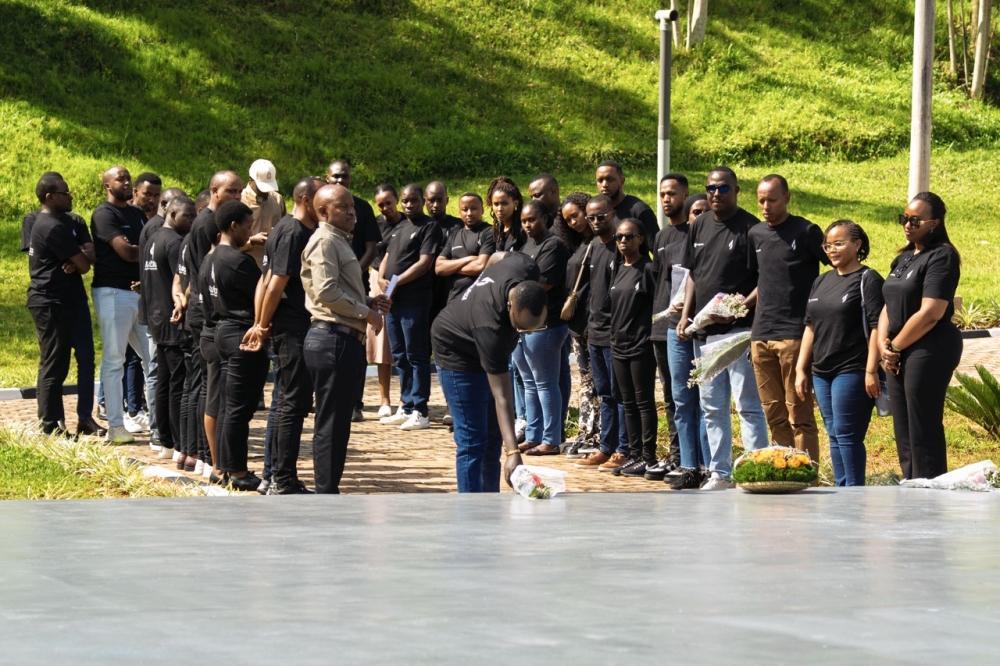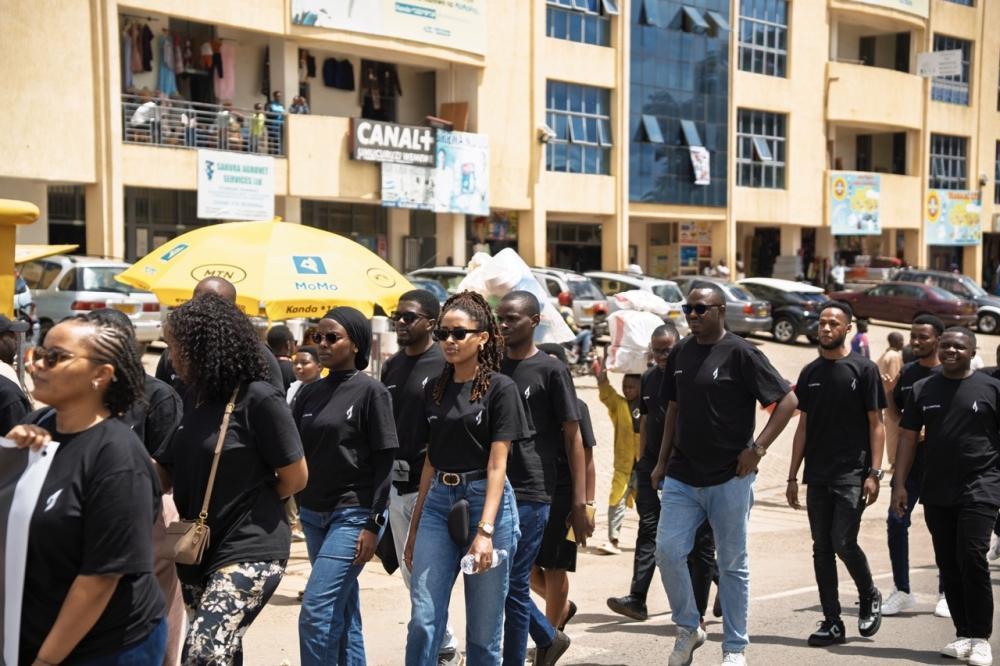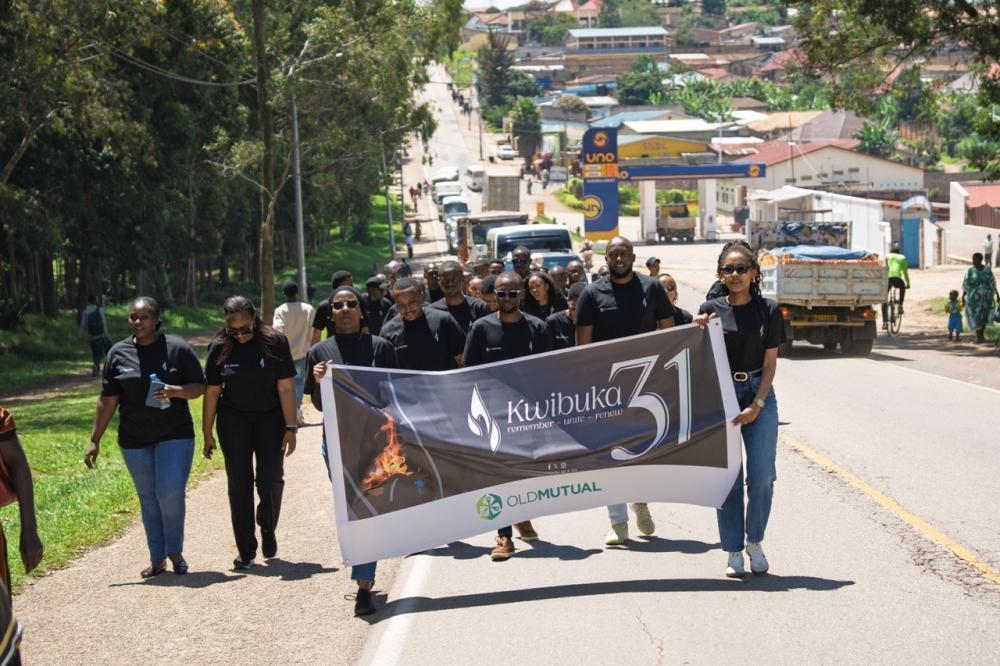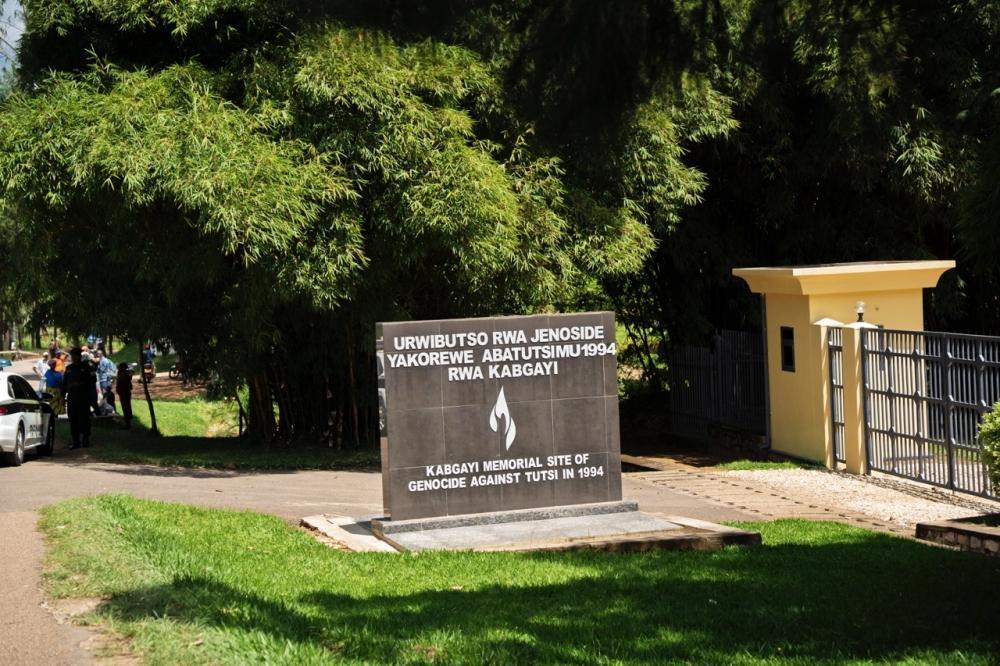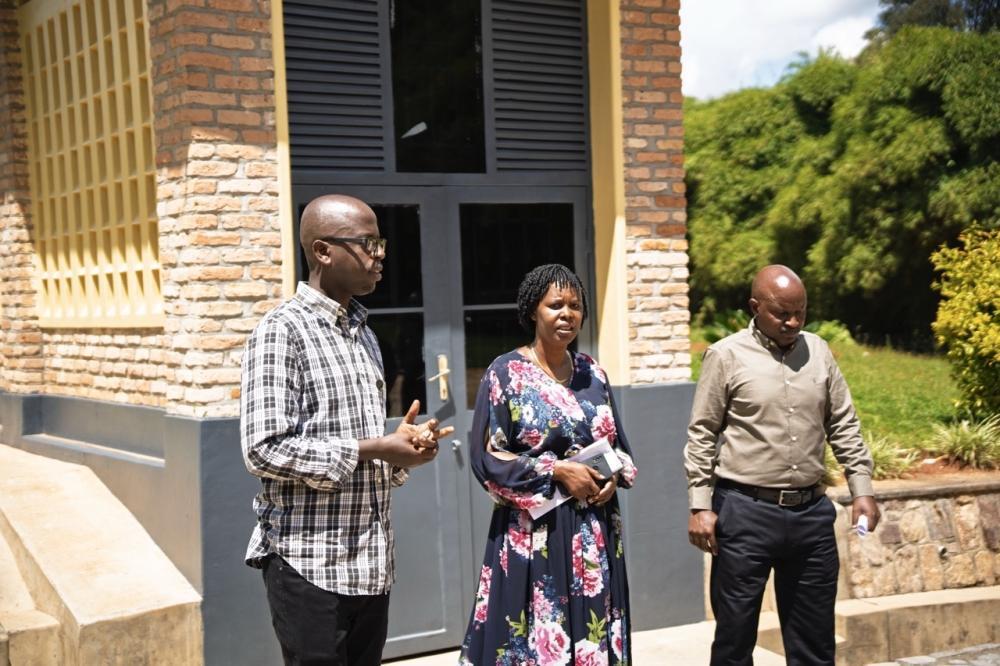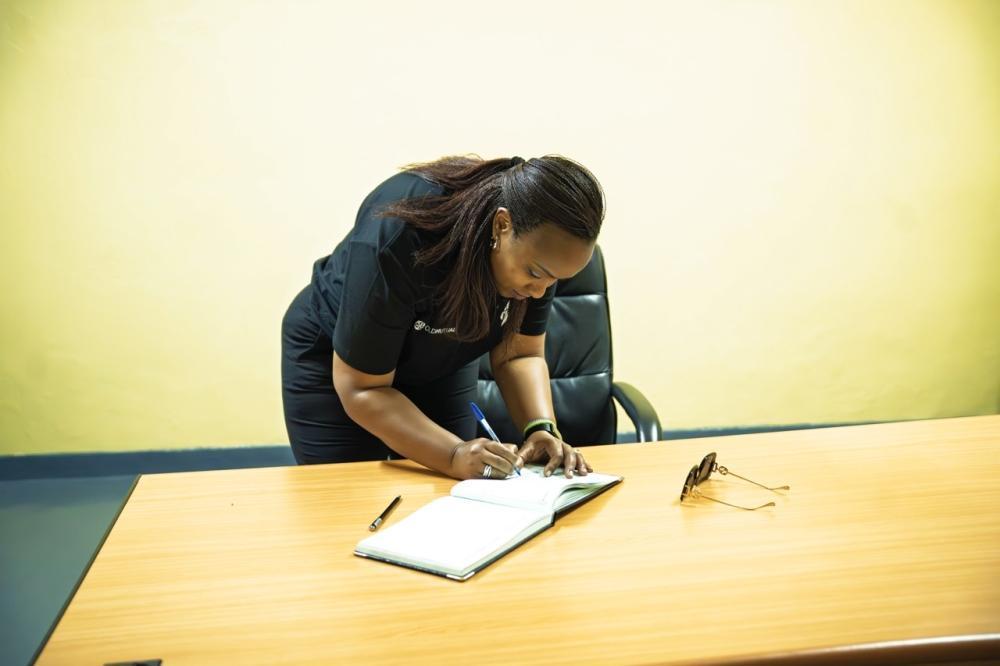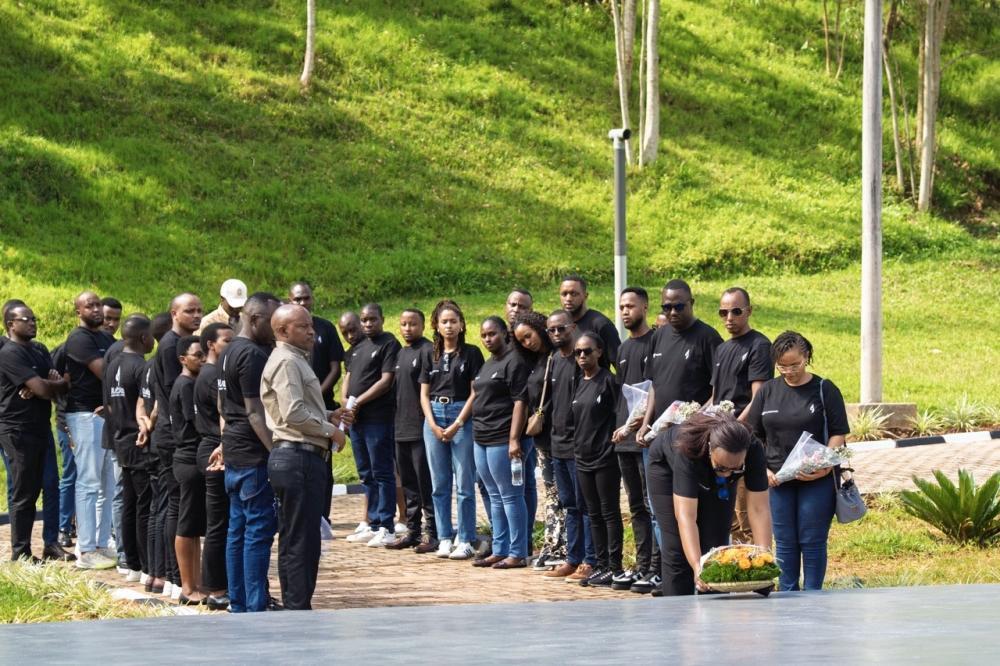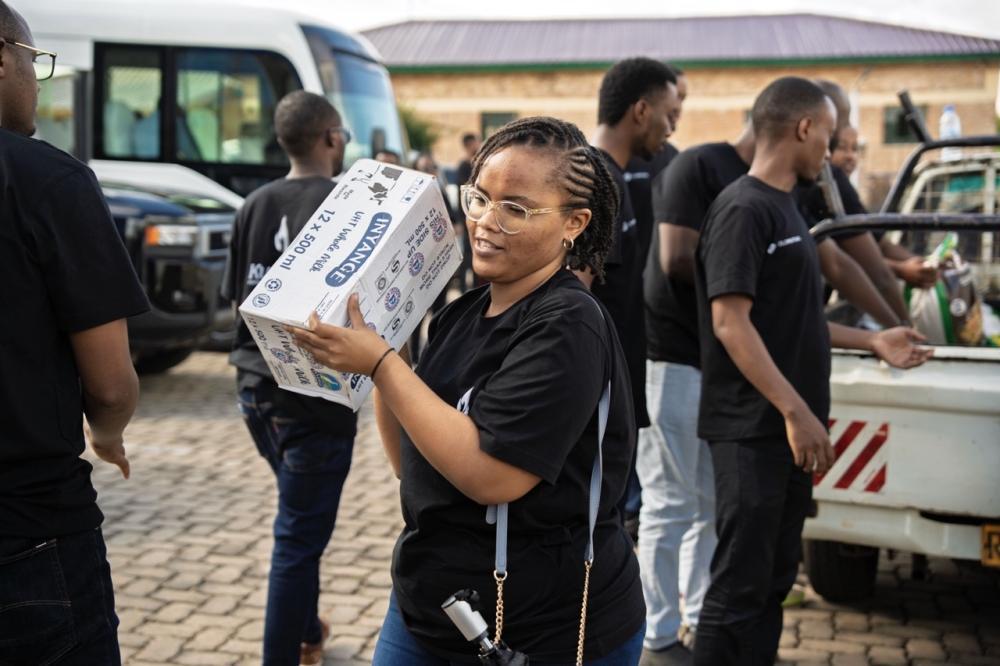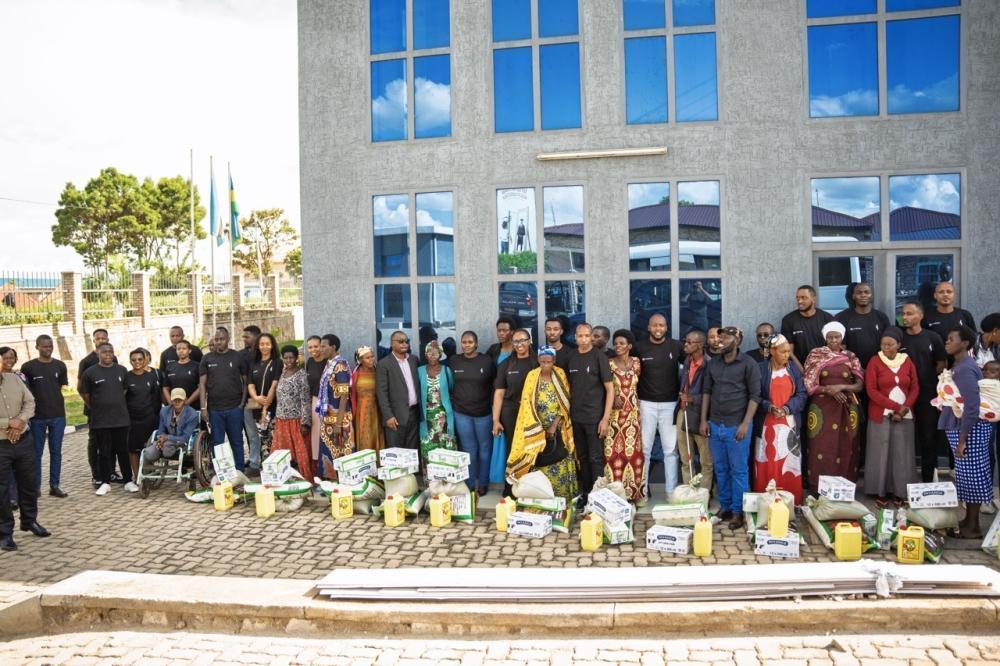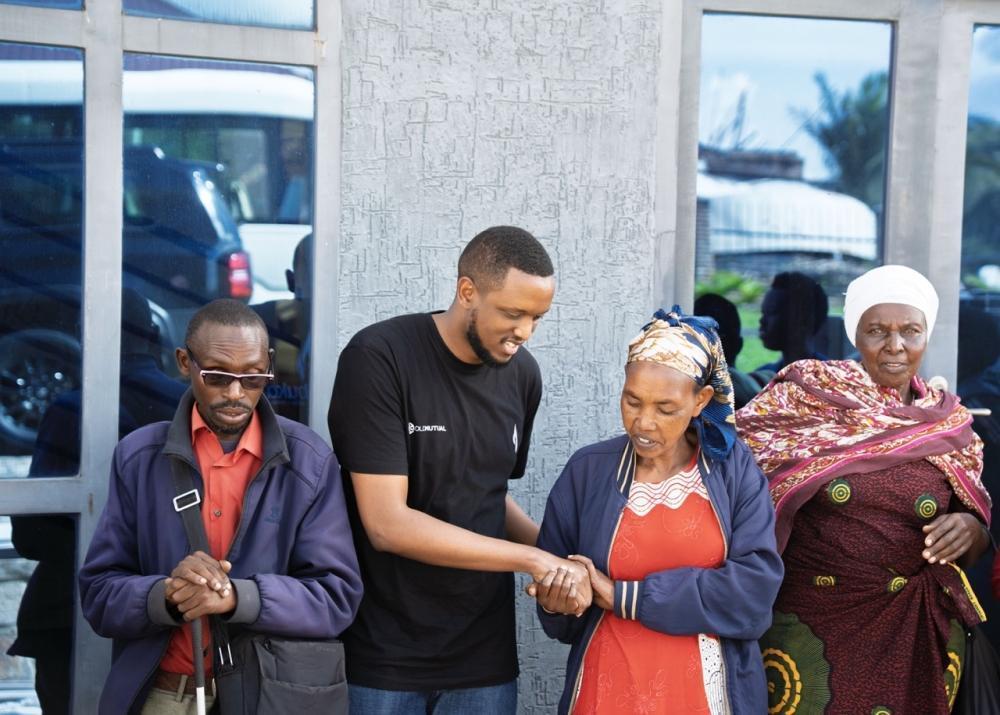Africa-Press – Rwanda. Old Mutual Insurance Rwanda (OMIR) staff on May 9, joined the nation in observing the 31st Commemoration of the 1994 Genocide against the Tutsi by honouring the victims laid to rest at the Kabgayi Genocide Memorial in Muhanga District.
The commemoration began with a ‘Walk to Remember’, where the insurers walked from the company’s Muhanga branch to the memorial site, in tribute to the more than 12,000 victims buried there.
At the memorial, the staff laid wreaths on the victims’ graves as a gesture of remembrance and respect. The commemoration continued at the Nyamabuye Sector office, where the delegation met with a Genocide survivor. There, they shared a message of comfort and donated essential supplies and hygiene items in a spirit of solidarity and support.
The delegation was informed about the historical events that led to the 1994 Genocide against the Tutsi, including the brutal killings that occurred in the area, and the courageous efforts of those who helped stop the atrocities, bringing hope back to the country.
They learned that by April 24, 1994, the 18th day of the Genocide, the killings had spread throughout Rwanda, with the southern region being severely affected. In the former Gitarama Prefecture, which now includes Muhanga, Ruhango, and Kamonyi districts, numerous massacres of Tutsi had taken place.
When the 1994 Genocide against the Tutsi started, many Tutsi fled to Kabgayi because it was seen as a safe place due to the presence of the Catholic Church. They gathered in churches, schools, and around the hospital, but the Interahamwe militia went to those places and killed them.
Issa Bayiringire, a Genocide survivor and President of Ibuka in Nyamabuye Sector, said that the area of Gitarama (now Muhanga) saw very brutal killings during the Genocide.
“These killings were caused by hate that had been spread for a long time by leaders of the PARMEHUTU political party. Top leaders of the interm government named itself “Leta y’Abatabazi” including the then-President Theodore Sindikubwabo, had moved its headquarters to Gitarama on April 8, 1994. They supported the killers who began gathering Tutsi people to murder them,” he explained.
“Even worse, refugees who had fled from Byumba due to fighting between the Rwanda Patriotic Army (RPA) and the government soldiers also arrived in Muhanga. These refugees, known as “Impunzi za Nyacyonga,” came with anger and later took part in the killings,” he said.
According to witnesses, their actions were extremely cruel and hard to describe.
“For example, they would take intellectual Tutsi people and mock them by saying, “Come for your salaries,” meaning they were taking them to be killed,” he explained.
Tutsi people began arriving in Kabgayi (in Muhanga) on April 20, 1994, seeking safety. They went to places like St. Leon Petit Seminaire, St. Joseph College, Major Seminary Philosophicum Kabgayi, Kabgayi Hospital, and former TRAFIPRO buildings, later called CND during the Genocide.
It is estimated that 50,000 Tutsi sought safety in Kabgayi, but only a few survived.
Annie Nibishaka, the Managing Director, noted that, “Old Mutual’s core values is active engagement with the communities in which we operate. This initiative is part of our continued commitment to supporting national efforts and contributing meaningfully to the country’s development and healing.”
“We believe it is our collective responsibility to ensure that the atrocities of the past—particularly the 1994 Genocide against the Tutsi—are never repeated,” she said.
Nibishaka believes that education and remembrance play a crucial role in this. “Our workforce is diverse, comprising both expatriates and a majority of young people, many of whom were either children or not yet born in 1994. It is important for them to understand the history of our nation to foster empathy, unity, and responsibility.”
“Remembering the victims also means standing with the survivors, acknowledging their pain, and supporting their ongoing journey of healing. We remain committed to this path of remembrance, education, and solidarity,” she added.
For More News And Analysis About Rwanda Follow Africa-Press

